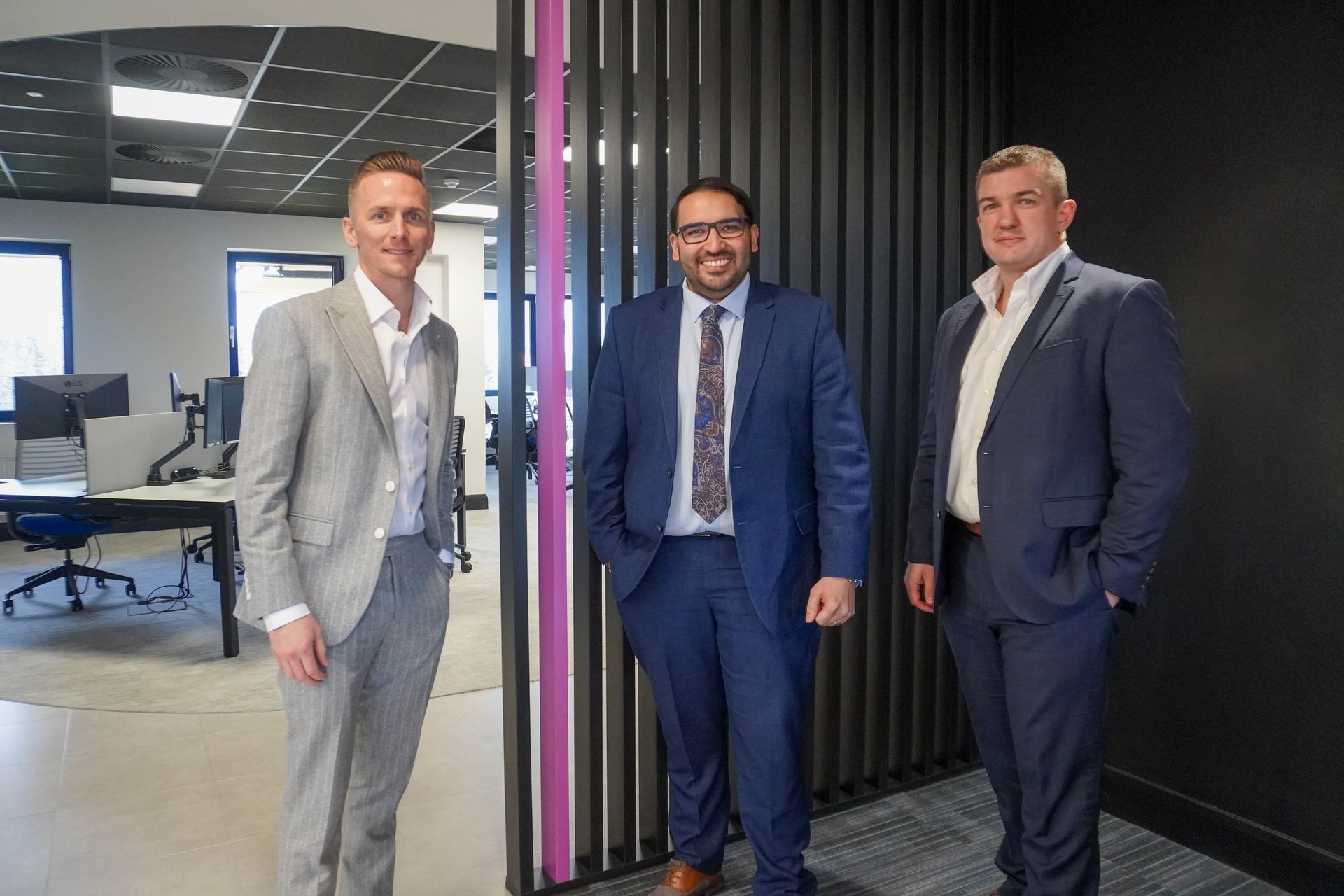The Future of Recruitment: Why It’s a Growing Industry to Watch
The Future of Recruitment: Why It’s a Growing Industry to Watch
The recruitment industry has undergone tremendous changes over the past few decades, though its growth is far from over. Recruitment is a sector adapting to the future of work, redefining businesses to meet their workforce needs.
So, what is the future of recruitment, and how will it continue to meet the evolving needs of job seekers and businesses?
In short, as modern society rapidly develops, so does the way companies find, hire, and retain talent. Advancements in technology, increasing workplace expectations, and a focus on diversity and inclusion are redefining how companies attract, engage, and retain
talent.
Let’s break down the future of recruitment below, including
insights into why recruitment is an industry to keep your eye on in the coming years.
1. Prioritising Diversity and Inclusion
Equality, diversity and inclusion (EDI) are increasingly at the forefront of recruitment strategies, becoming a critical focus for modern organisations.
According to McKinsey, ethnic and racially diverse companies outperform their competitors by 35%. As companies integrate D&I principles into their hiring practices, they are creating dedicated roles for D&I specialists and embedding these values into broader recruitment strategies.
Research by HR University also found that 37% of employees and job seekers would not consider applying to companies with a poor reputation among people of colour. Job seekers are actively seeking companies that prioritise D&I, often inquiring about these commitments during interviews.
Emphasising diversity helps meet candidate expectations and attracts the most qualified and diverse talent. This helps to improve overall performance and creates a stronger, more positive workplace culture.

2. Adoption of Digital Recruitment Tools
The shift to a virtual workplace has accelerated the use of digital recruitment tools, reshaping hiring strategies. Organisations are increasingly using technologies such as ATS (applicant tracking systems), candidate screening software, and video interviews to streamline recruitment processes.
AI recruiting tools automate tasks like CV screening, candidate summarisation, and generating tailored interview questions, freeing up recruiters to focus on strategic decisions.
Meanwhile, predictive analytics is revolutionising recruitment by using real-time and historical data to forecast hiring outcomes and improve decision-making.
This technology analyses patterns from past hiring trends, employee performance, and retention rates. This
predictive hiring method indicates which candidates are most likely to succeed in specific roles, stay longer with the company, and fit the organisational culture.
As technology continues to advance, automation, AI, and predictive analytics will play an even greater role in the future of recruitment. The goal is to improve recruitment efficiency and the overall candidate experience, enabling smarter, data-driven decisions for long-term success.
3. The Importance of Candidate Experience
With 78% of job candidates believing that the recruitment process reflects how a company values its people, candidate experience has become a critical factor in recruitment.
Talented professionals have greater expectations as to how they are treated during the hiring process. A negative candidate experience can lead to bad reviews, a tarnished employer brand, and even a potential loss of future talent.
As a result, businesses are focusing on making the recruitment process more transparent and engaging. This includes offering clear communication at each hiring stage, providing feedback, and ensuring candidates feel valued - even if they aren’t ultimately hired.
In fact,
95% of unsuccessful candidates are open to reapplying if they had a positive experience, and
97% would refer others. A positive candidate experience can increase the likelihood of attracting top talent and that your employer brand is attractive to future candidates.
As recruitment continues to evolve, a strong focus on candidate experience will remain key. The future of recruitment lies in building meaningful relationships with candidates and maintaining a positive experience that resonates long after the interview.

4. The Rise of Global Talent Pools
The shift towards remote and hybrid work models has significantly affected recruitment strategies. With the rise of remote job opportunities, companies are expanding their talent pools beyond geographical limitations.
According to research by Deel, companies are hiring staff from countries like the US, Italy, Turkey, Argentina, and Poland, with fast-growing markets including Ghana, Indonesia, Turkey, and Malaysia. This shift presents a wealth of opportunities for both employers and job seekers, unlocking access to top talent from around the world.
One of The Recolution Group’s partners,
Conexus, has embraced this trend by leveraging its global talent network to connect businesses with exceptional professionals.
The team has successfully facilitated relocations, such as helping skilled individuals from India transition to roles in Germany. With access to a
worldwide talent pool, Conexus has helped businesses find top talent while enabling professionals to gain opportunities across borders.
This change opens up new possibilities for employers and job seekers, allowing access to a more diverse and qualified pool of candidates. Recruitment professionals increasingly need to be skilled in managing a remote hiring process, navigating various time zones, and understanding the nuances of hiring employees across different cultures.
For businesses, this opens up the possibility of hiring top-tier talent, regardless of location, but it also means that competition for skilled workers is fiercer than ever. This trend regarding global talent pools is set to continue shaping the future of recruitment, with businesses needing to stay agile and innovative to stay ahead.

5. Focus on Upskilling and Employee Retention
Hiring the right talent is only half the battle - retaining them is just as important. The future of recruitment will likely focus more on employee retention strategies, including career development and leadership initiatives.
Research from ProEdge PwC found that 77% of workers want to gain new skills in their training, highlighting the demand for continuous learning and career advancement opportunities.
Companies are increasingly investing in programs that foster employee growth and development. This helps with employee retention and reduces the need for constant recruitment efforts.
Upskilling projects, mentorship schemes, and internal mobility programs are becoming key within recruitment strategies. In addition to finding top talent, recruitment professionals will increasingly need to ensure that those they bring in will stay and thrive within the organisation.
In the future, the ability to nurture and retain talent will be a key driver of business success.
How We Can Help
We hope that our post on the future of recruitment gave you insights into how the recruitment industry will look over the coming years.
Unleash your potential with the Recolution Group! Join a forward-thinking team and take your
career in recruiting to new heights.
Explore our
internal vacancies or connect with us directly at
+44(0) 2922 260 100 – your future starts now!











